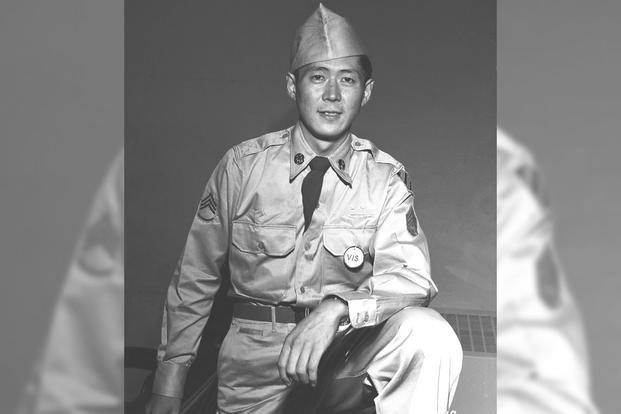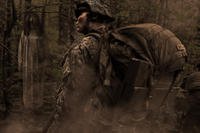After more than two years in a Chinese communist prison camp, Army Sgt. Hiroshi Miyamura and 19 other POWs were released at Panmunjom and taken to the nearby Freedom Village on Aug. 23, 1953. But instead of jubilation, Miyamura -- known as "Hershey" -- looked the very picture of nervousness. Clutching a canteen cup of ice cream and looking even smaller than usual in mis-sized fatigues, the slight Asian-American soldier waited to hear that he was being brought up for court-martial for losing so many men at Taejon-ni, Korea, on April 24, 1951, amid a Chinese wave offensive.
Finally, his name was announced crisply. The voice belonged not to a military policeman, however, but to a general officer. Dazed as he was, Miyamura did not understand exactly what the general said. "You want to give me what medal?" Miyamura replied. At last, it sank in: Brig. Gen. Ralph Osborne, commander of Freedom Village, was telling Miyamura that he had been awarded the Congressional Medal of Honor for his actions during the very offensive in which Miyamura thought he'd lost too many men.
On April 24, 1951, then-Cpl. Miyamura was manning a machine gun with his unit when cries of "Kill, kill, dam 'mericans!" filled the air. As the wave of Chinese communist soldiers appeared, Miyamura immediately fixed his bayonet to his rifle, leaped up and attempted to stave off as much of the enemy as possible. Unbeknownst to him as he fought, his selfless actions allowed many of his comrades to reach safety.
Miyamura was left to take shelter in a covered bunker. Wounded and hopelessly outnumbered, he continued to fight off the enemy in hand-to-hand combat. Finally, he played dead and scores of enemy soldiers passed him by -- until a Chinese officer leveled a .45 at his head and said, "Get up." Miyamura became a prisoner.
At first, no one in the U.S. knew what had become of him because the Chinese did not release his name immediately. As soon as they did, the U.S. government knew that the Medal of Honor citation that had already been written must be classified as top secret. If it hadn't been, Osborne explained to the shaken young sergeant, "You might not be here, alive, today." Had Miyamura's captors known what he had done to their troops in the last hours before his capture, they might have tortured him or executed him summarily.
In December 1953, Miyamura received his "secret" Medal of Honor from President Dwight D. Eisenhower in a ceremony at the White House -- light-years from the North Korean prison camp he'd recently left.
Want to Know More About the Military?
Be sure to get the latest news about the U.S. military, as well as critical info about how to join and all the benefits of service. Subscribe to Military.com and receive customized updates delivered straight to your inbox.















